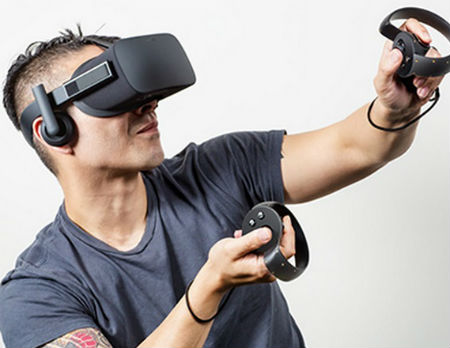Facebook CEO Tempers Oculus Expectations
The smarter way to stay on top of the multichannel video marketplace. Sign up below.
You are now subscribed
Your newsletter sign-up was successful

Facebook is set to offer a $99 version of the Gear VR mobile headset with Samsung this holiday season and follow early next year with the Oculus Rift headset, but company CEO Mark Zuckerberg doesn’t expect virtual reality to catch on like wildfire right out of the chute.
It will take some time for VR to become adopted by consumers on a broad basis, perhaps following the growth rate of first-gen smartphones, but Facebook is in the virtual/augmented reality game for the long-term, Zuckerberg emphasized Wednesday on the company’s third quarter earnings call.
“Virtual reality has the potential to be the next computing platform that changes all of our lives,” he said. “It's important also to recognize that this is going to grow slowly, like computers and mobile phones when they first arrived. So we're committed to Oculus and virtual reality for the long-term.”
VR and other new platforms “take a long time to develop,” Zuckerberg acknowledged.
“But just to put that in perspective and compare it to the development of previous computing platforms like phones and computers, I think the first smartphones came out in 2003, and in the first year, I think BlackBerry and Palm Treo were the initial smartphones that came out,” he said. “I think they each sold in the hundreds of thousands of units.”
On the content end, he said gaming is VR’s “most obvious market…Then the next thing that we think is going to be huge is video and immersive experiences, both things that people can create, like the social content that they share on Facebook today, and more professional and premium content both short form and longer form.”
Facebook, which acquired Oculus VR in 2014 for $2 billion, also isn’t yet pinning any firm financial expectations on VR. Company CFO David Wehner wouldn’t discuss the possible operational expenses that Oculus could absorb in 2016.
The smarter way to stay on top of the multichannel video marketplace. Sign up below.
“We're, as Mark said, very bullish about the long-term opportunity for VR and excited about the launch for the Rift next year,” Wehner said. “But VR is still very much in the development stage, so it would be early to be talking about large shipment volumes.”
But analysts are keeping a close eye on those developments.
“There is great interest from the Street on the evolution of Oculus, in part because of its potential contribution to revenues but most importantly because of its potential impact on operating expense (guidance) growth,” Bernstein Research analyst Carlos Kirjner said in a research note. “Zuckerberg was very clear in his attempt to lower expectations on the number of Oculus units sold next year, suggesting to us that the total impact of potential subsidies to hardware will be limited.”
